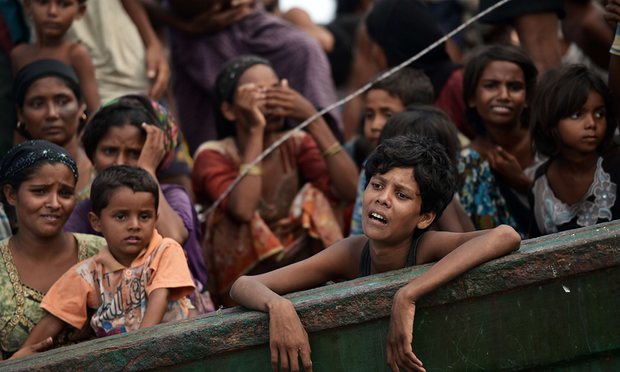“Human trafficking and exploitation are rife among Rohingya refugees who have fled Myanmar to seek safety in Cox’s Bazar, Bangladesh”- International Organization for Migration (IOM)
According to the United Nations’ protocol, sex trafficking is defined as the recruitment, transportation, transfer, harboring or receipt of persons who under threat, force, coercion, fraud, deception or abuse of power are sexually exploited. They are exploited for the financial gain of another.
Rohingya Sex Trafficking
According to the Thomson Reuters Foundation, the plight of Rohingya refugees in Bangladesh is worsening. This is mainly due to the booming secretive sex trade in refugee camps. The sex trafficking is strengthened by the influx of more than half a million Rohingya into Bangladesh from Myanmar. Facing insecurity, overcrowding and inadequate access to food, water and shelter, women and girls living in Bangladeshi refugee camps are vulnerable to violence, trafficking and sexual exploitation. In addition, reports indicate the chaotic conditions in the camps render children, especially girls and young women, particularly vulnerable to sex trafficking.
According to BBC, girls in their early teens are trafficked into prostitution in Rohingya refugee camps in Bangladesh. The easy access to children in the camps is the new threat for refugees forced for prostitution. Traffickers understand and identify opportunities their desperate conditions including extreme poverty, lack of alternatives for their daily survival and use the same to trade sex into cash. Meanwhile, these refugees are also deprived of equal access to education or job training to make a living. This has created a history of abuse and sexual violence in their families.
Syrian Refugee Sex Trafficking
According to the International Organization for Migration (IOM), at least 1,883 migrants have died so far in 2017. Among those, 70 percent while attempting to cross the Mediterranean Sea, which is not only deadly, but also open for sex trafficking. In some circumstances, the sources claimed that migrants voluntarily make the decision to take on sex work for financial survival for deceitful lucrative promises. However, upon agreeing to this work, refugees have become sex slaves where they often fall into deeper poverty.
Prevention: Let’s Share Hope
Sex trafficking is one of the plights of the refugee crisis. Anti-sex-trafficking strategy is a responsibility of all the global counterparts. To combat such vulnerable issues, governments together with United Nations can strengthen the legal systems for victimized refugees. Access to law enforcement authorities should be available for the victims.
However, across the globe, the crisis needs far more attention. More legal frameworks and increase of economic stability to prevent tens of millions refugees vulnerable to sex trafficking is vital. Refugees need preventative and proactive action to mitigate risks of human trafficking. The survivors need help, before this spiral gets out of control. Also, empowering anti-sex-trafficking programs to raise the voice to bring down sex trafficking rings is a critical timely requirement.


